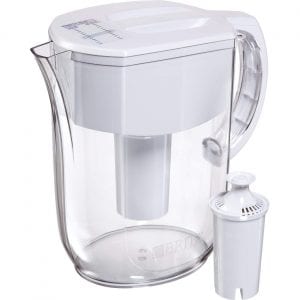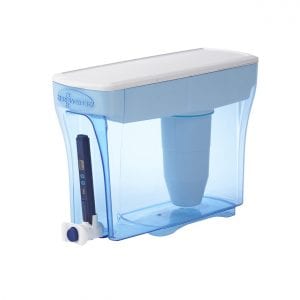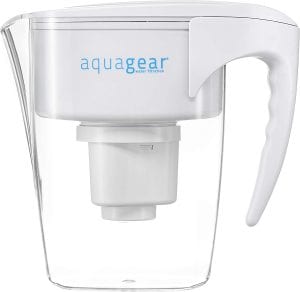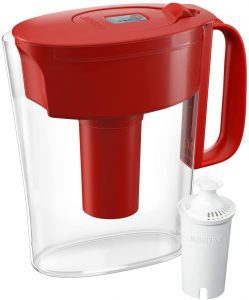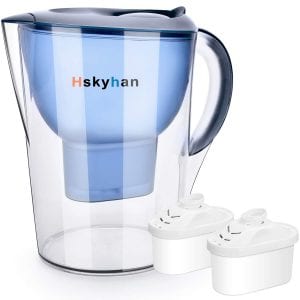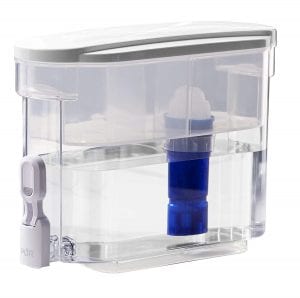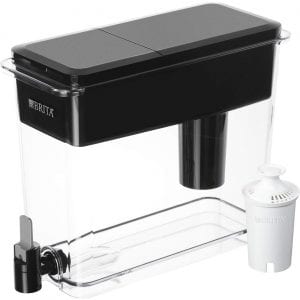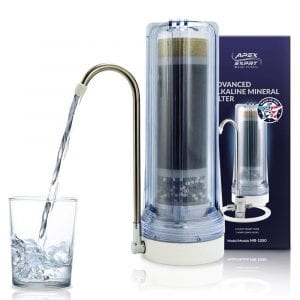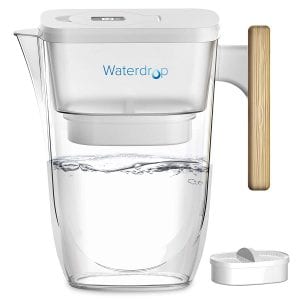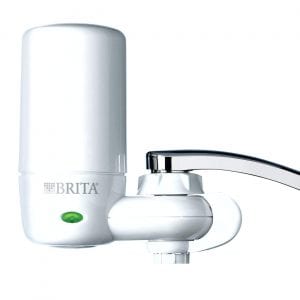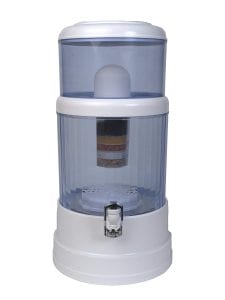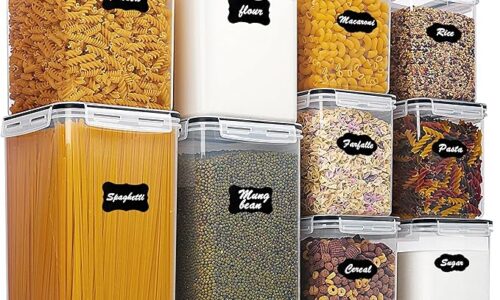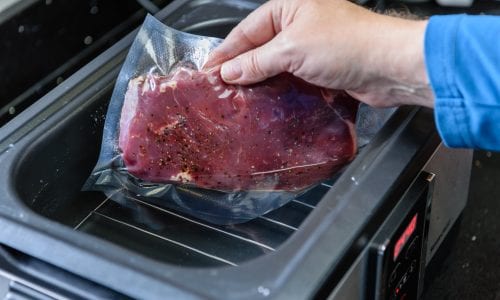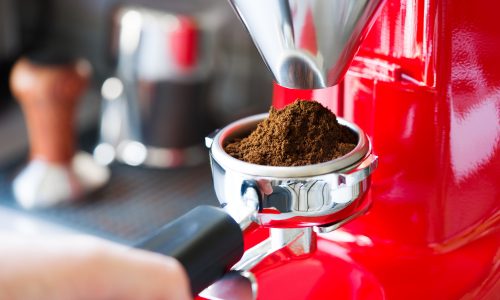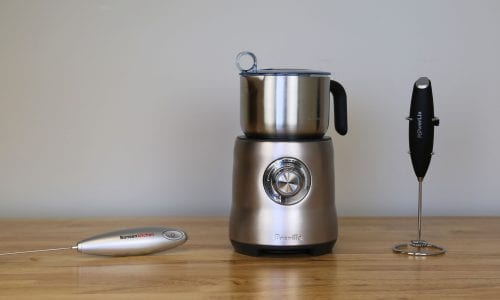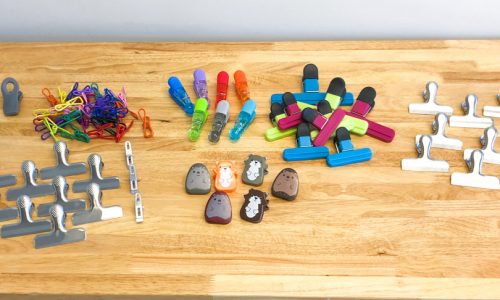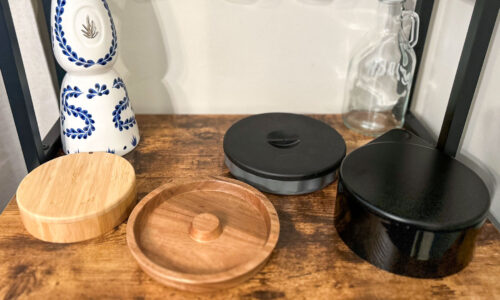The Best Water Purifier
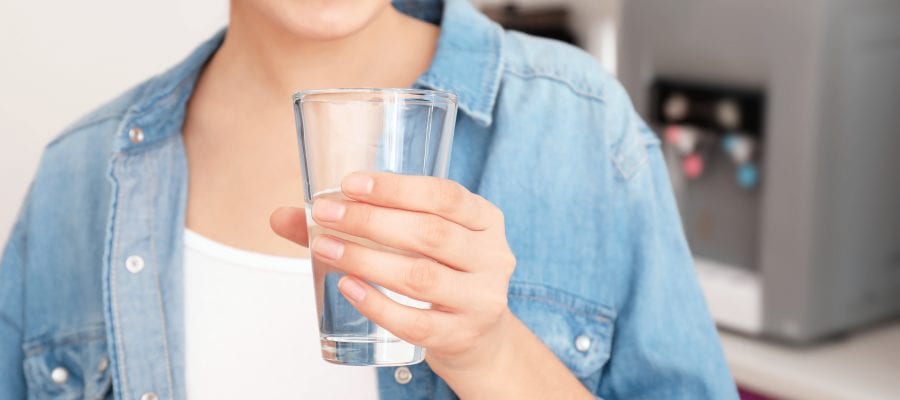
Our Review Process
Don't Waste Your Money is focused on helping you make the best purchasing decision. Our team of experts spends hundreds of hours analyzing, testing, and researching products so you don't have to. Learn more.
Our Picks For The Top Water Purifiers
- 1. Brita 10 Cup Water Pitcher with Filter
- 2. ZeroWater Pitcher with Water Quality Meter, 23 Cup
- 3. Aquagear BPA-Free Water Purifier
- 4. Brita 5 Cup Water Pitcher with Filter
- 5. Hskyhan Alkaline Water Filter Pitcher, 3.5 Liters
- 6. PUR 18 Cup Ultimate Water Dispenser
- 7. Brita Ultra Max 18 Cup Dispenser with Filter
- 8. Apex Countertop Water Filter
- 9. Waterdrop Long-Lasting Water Filter Pitcher
- 10. Brita Tap Water Filter System
- 11. Zen Water Systems Countertop Filtration System
The Brita 10 Cup Water Pitcher is a solid choice for everyday use, thanks to an easy-cleaning design. The filter effectively removes heavy metals from drinking water and is BPA-free. A simple sticker indicator lets you know when to replace the filter, which is a snap to remove.
Effective Economy PitcherThis popular Brita 10 Cup Water Pitcher with Filter handles most particles and is a snap to maintain.
The ZeroWater Pitcher with Water Quality Meter can dispense up to 23 cups of water, yet it still has a slim tank that fits in your fridge. It offers a five-stage filtration system so you can rest assured your water is clean and free from lead and other heavy metals.
Good for a CrowdThe ZeroWater Pitcher with Water Quality Meter, 23 Cup is great for providing water to large groups of people.
The high-quality Aquagear uses a 5-stage system that removes contaminants like lead and zinc from water while retaining healthy minerals. Each filter, like the pitcher itself, is recyclable and long-lasting. The entire system is also dishwasher-safe for easy cleaning. In our testing, we liked how quickly it filtered the water. We also liked the re-...
Extra SafeThe Aquagear Water Filter Pitcher's recyclable filters remove minerals, as well as pollutants.
With a compact profile, the Brita 5 Cup is ideal for mini-fridges or other tight spaces. Made from BPA-free material, this pitcher's filter removes chlorine odors and most other impurities. The change indicator and flip-top lid also make for easy maintenance. In our testing, we were impressed by how quickly this pitcher filtered our water and found...
Compact And DependableThe Brita 5 Cup Water Pitcher with Filter fits into tight spaces, with a filter indicator for easy replacements.
Buying Guide
For many homes, a water purifier helps keep drinking water safe and can improve the taste of the water. They can come in a couple of different forms: gadgets that attach directly to a faucet or the more popular jug purifiers that incorporate a filter directly into a pitcher or other receptacle. In the latter versions, you simply pour water into the pitcher, and it trickles through a filter into a lower reservoir, cleaner and tastier.
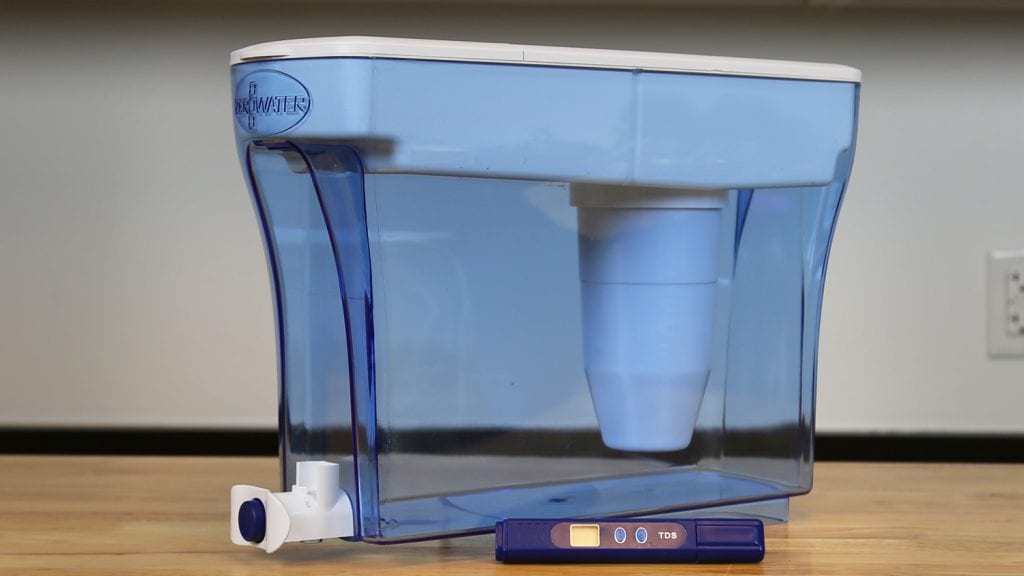
How does it do this? In almost every case, personal water purifiers use activated carbon to filter impurities. Carbon is very effective at catching a wide array of particles through the process of adsorption, catching chlorine and other unwanted substances in its pores. You can expect carbon filters to remove particles measuring anywhere from 50 micrometers down to .5 micrometers (a micrometer, also known as a micron, being a mere one-millionth of a meter). You might find that measurement in the specs of a purifier or even in the product blurbs if it’s an especially low number.
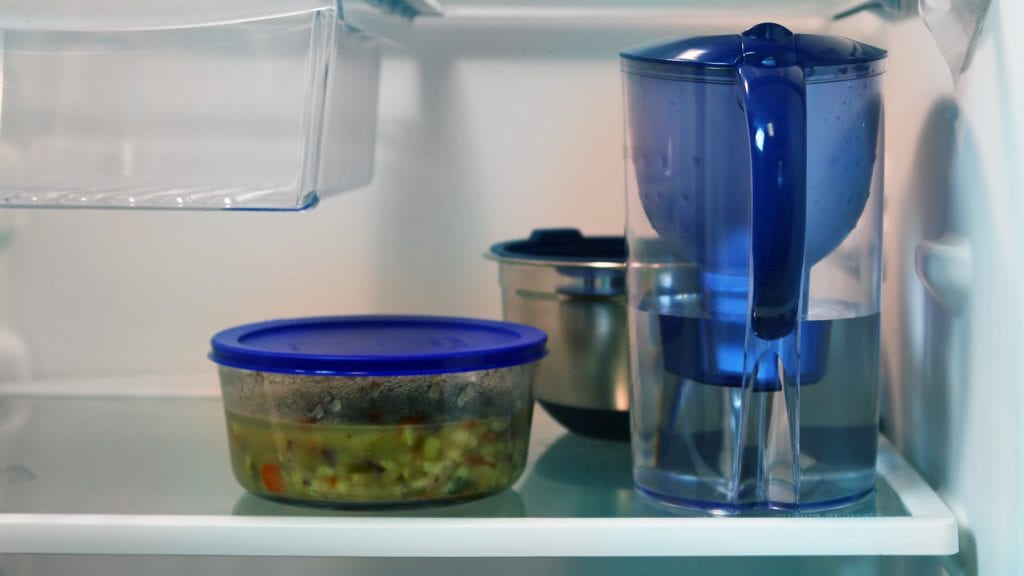
While carbon filters are great at removing most toxic particles and organic compounds, they’re not so good at catching minerals. Mind you, many of the minerals you’ll find in water are beneficial ones that the body needs, like calcium and magnesium. Even so, some purifiers opt for a secondary filter that can catch bad minerals and leave harmless ones in the mix.
So how do you know what kind of purifier you need? Since even the most thorough jug filtration systems won’t break the bank, it can be easy to just choose the most powerful one. But purifiers with extra layers of filtering can take time to push that water through the system or need more frequent replacements — a big hassle for large families on busy mornings.
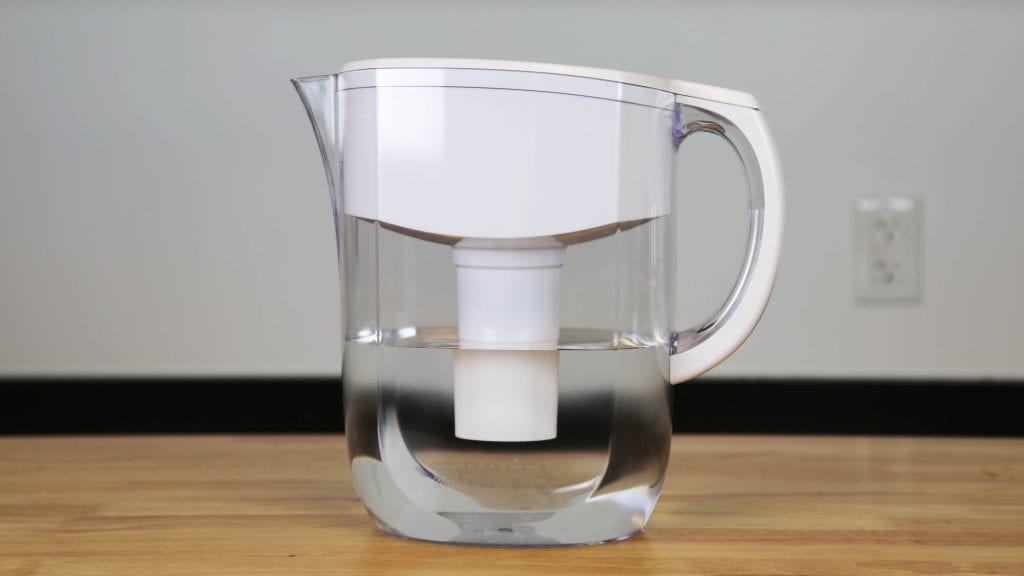
It might be best to find out what contaminants are in your water to begin with, and you can do that by getting a water testing kit. They can be obtained from most state or local health departments. The website of the Environmental Protection Agency has a handy list on its website if you’re not sure who to contact first. Those kits will tell you the kind of substances that might be making your water taste funny (like zinc and chlorine), and raise a red flag for harmful and potentially fatal chemicals like lead.
What to Look For
- Jug purifiers are super convenient and simple to maintain, and you can even take them on a picnic. It can be easy to forget that they’re even filtering your water, unless that process takes awhile. And with more powerful, multi-stage filters, it typically will. The process of purifying a full jug of water can vary widely between brands and models — anywhere from a minute or so to ten minutes or more. That can be a pain for impatient kids on the way out the door to school, but the trade-off might be worth it if you’re extra health-conscious.
- One sacrifice for the convenience of a jug purifier is the relatively frequent replacement of the filter. As activated carbon accumulates particles, it reaches a point where it can’t adsorb any more from the water. A filter change will get your filter cleaning again, and how often that should be done can vary. About two or three months is standard for most systems. It’s a good idea to price the filters before you buy, since frequent, pricey replacements can more than offset the savings from a cheap purifier.
- Space is a big practical concern for purifiers. Most of them are designed to fit snugly on a refrigerator shelf, though some compact models can be small enough to slide into the fridge door. That’s great when there’s not a lot of room, but of course, you can expect to fill it up more frequently.
More to Explore
Activated carbon filters sound like a recent advancement dreamed up in the research labs of big companies, but the ancient Egyptians were way ahead of us — as they were with so many things. By 1500 B.C., they had discovered that charcoal was effective in removing unwanted odors from water. The Egyptians used it not only to purify their drinkables, but also as a cure for intestinal diseases and even to preserve their dead. The Hindus and Phoenicians took up this practice by 700 B.C., storing drinking water in charred barrels during long overseas voyages.

